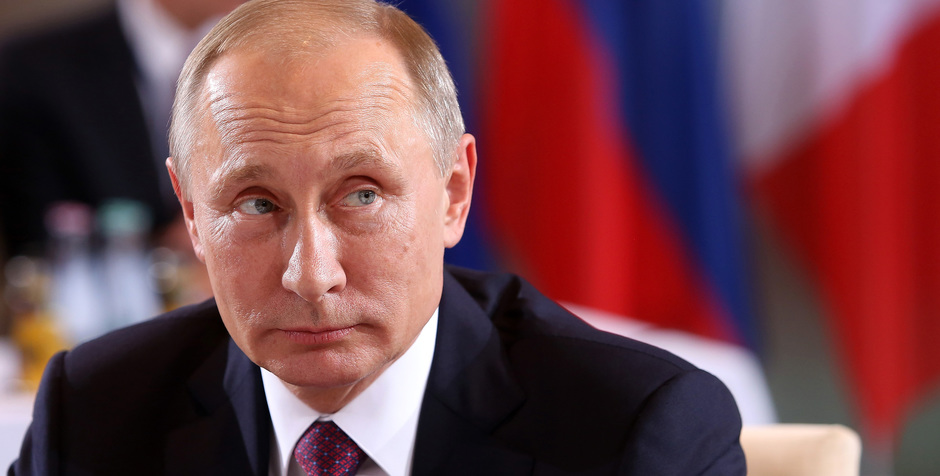The Hard Truth About Putin’s Russia
The press conference yesterday with U.S. Secretary of State Rex Tillerson and Russian Foreign Minister Sergey Lavrov was illustrative of the real relationship between the United States and Russia. Tillerson’s sober countenance and markedly brief opening statement was reminiscent of the meeting years ago between President Reagan and then-Soviet Premier Gorbachev in Reykjavik, Iceland: Tillerson facial expressions said it all. He refused to put a positive spin on an unproductive meeting with a recalcitrant and uncooperative Russian leader, Vladimir Putin. Unable to reason with an unreasonable Russian President and Foreign Minister, he stated the obvious, answered the media’s questions candidly, and boarded his airplane for the flight back to the U.S.A.
As this was transpiring, Russia for the eighth time vetoed a resolution at the United Nations Security Council that would have condemned Assad’s use of chemical weapons and called for an independent investigation of the Syrian airbase from which the chemical attack was launched and events leading up to the horrific attack on innocent Syrian civilians.
Ironically, at the joint Tillerson/Lavrov news conference, the Russian Foreign Minister objected to the United States’ opposition to Syria’s Assad by proclaiming the innocence of Assad – with the lack of United Nations sanctions as proof of the dictator’s legitimacy. There are no U.N. sanctions because Russia will not allow it. It is not indicative of a lack of culpability of Assad, but rather the intransigence of Russia.
Here are some facts about Russia that Putin and the Russians would just as soon not discuss:
- Russia invaded and occupied Crimea with impunity.
- Russia continues to occupy parts of the sovereign nation of Ukraine and is working to overthrow its democratically-elected government.
- Russia routinely tries to interfere in the election process of other nations; for example, a senior White House official revealed yesterday that Russia supported a plot to launch violent attacks on election day in Montenegro last fall. Montenegro is the newest member of NATO.
- Russian warplanes, while not using chemical weapons, have repeatedly bombed hospitals and other civilian targets in Syria. Innumerable innocent civilians have died in Syria at the hands of Russian military forces.
- The U.S. is investigating reports that Russia is actively supporting the Taliban in Afghanistan, even as the Taliban attacks the United States and its allies there.
- The Putin regime routinely arrests dissidents in Russia and is implicated in the assassination of several of Putin’s political opponents.
- New Russian laws under Putin have placed new restrictions on churches in Russia and it is now a criminal offense to evangelize, or share the Gospel, in any place other than inside a church building.
- Russia is the key ally and supporter of Iran, the world’s largest state sponsor of terrorism who has called for the destruction of Israel and uses Hezbollah and other proxies to sow unrest in Iraq, Syria, and Lebanon. Meanwhile, thanks in large part to the feckless policies of the Obama Administration, Iran works to perfect its ballistic missile technology and to acquire nuclear weapons.
It is difficult to negotiate in good faith with a nation like Russia that lies about so many facts on so many fronts. It is impossible to partner with a nation that continues to flout human rights and international law. There is no collaborative way forward with a country that is so casual about the suffering and deaths of innocent men, women, and children. The United States, a country whose foundation is democracy and the rule of law, cannot excuse the behavior of a Russian regime who continues to undermine democracy and the rule of law in other nations around the world, including our own.
Rex Tillerson’s clear-eyed and candid assessment of Russia, and his refusal to pretend like they are a legitimate partner on the world stage, is indicative of a statesman who values diplomacy – but who also understands that a commitment to truth, freedom and human decency is the foundation of good international relations. Human Rights and international law can never be sacrificed on the altar of diplomacy.
